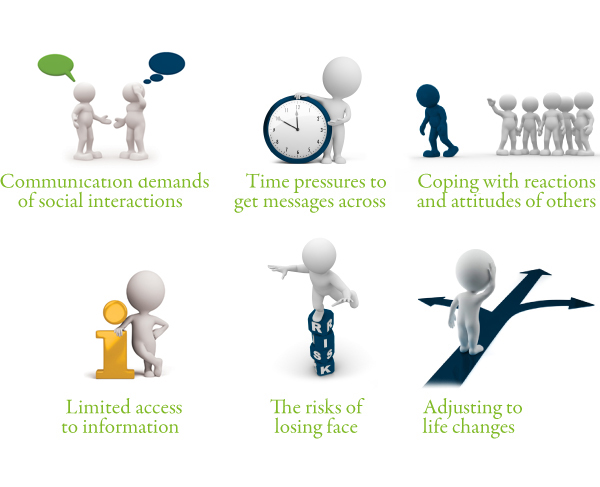7 Ways to Build Confidence in Kids with Speech Disorders
Help Your Child Develop Self-Esteem in the Face of Communication Challenges
Speech disorders and delays can not only effect how children are able to communicate, but also their confidence and self-esteem. When this happens, their behavior, learning, and relationships can be affected to various degrees. In fact, some researchers propose that kids with speech delays can be more at risk for things such as bullying because they can seem more reclusive. There are ways, however, that parents, teachers, and caregivers can help build confidence and ease frustrations.
1. Help them meet other kids with speech disorders.
If your child is the only one in his class with a speech delay, he might already feel the pressure of being different. Introduce him to other kids who face some of the same challenges. When our kids feel like they are not the only ones experiencing a challenge, they feel a sense of belonging. Belonging – having comrades – not only helps to provide comfort, but can be a great resource for support and possible tools for speech therapy techniques.
2. Teach them how to set goals that build confidence.
We gain confidence in part from experiencing failure, trying again, and achieving success. The goals don’t need to be about anything speech related, but maybe a hobby or school project. Talk about how to set goals that are specific and broken down into steps – not just generalized statements like I want to become a great hockey player.
3. Include exercise and healthy eating and sleeping habits.
Research has shown that overall physical health is closely tied with mental health. Make sure your kids have lots of opportunities for healthy physical activity, and that they are getting enough rest at night. Pay attention to their diets, too, because some foods can cause hyperactivity in some children, making it harder for them to focus and feel like they can accomplish their goals. Exercises like yoga can have calming effects on both the mind and the body.
4. Pay attention to your own communication with your kids.
As parents we say so much to our own kids, even without words. No matter if kids are struggling with speech disorders, learning disabilities, bullying, or family issues, as parents we need to show them that our relationship with them is solid, and that we have confidence in their abilities. Maintain eye contact when they are speaking with you, don’t finish their sentences for them, and give them enough time to communicate with you.
5. Volunteer together.
Sometimes the best way to take the focus off of one’s own problems or challenges is to help someone else overcome their own. Volunteering gives kids the opportunities to meet others with challenges, learn about their own capabilities, and accomplish goals. Look for ways to volunteer together that highlight your child’s strengths and don’t rely on communication skills.
6. Avoid constant praise.
Even though it sounds counterintuitive, praise doesn’t necessarily build confidence. Instead, point out to your child the facts without adding extra value. Talk about things your child has mastered, and ask them what they are working on learning or doing next. It is also important to remember that there is a fine line between praising the child and praising the process. Praise the effort and the action, but don’t place the value directly on the person.
7. Help them find opportunities to build self-esteem.
Kids who have hobbies or special interests can have more opportunities for success, which can help build confidence. Encourage your child to take a cooking or art class, join a sport team, or take up a hobby she can do at home with you. These activities that focus on other abilities and strengths provide positive outlets for energy and personal growth.







One of the most important jobs for parents is to help your child successfully through life’s challenges and successes, help them feel good about themselves along the way, and learn to accept mistakes as an opportunity to do better next time.